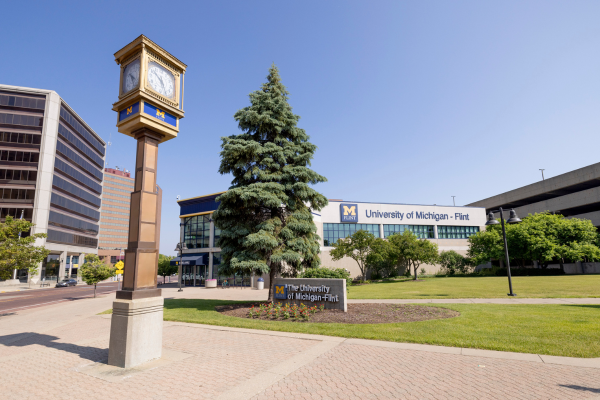UM-Flint budget increases institutional aid for students

The budget for the 2024 fiscal year at the University of Michigan-Flint increases the amount of institutional financial aid available to students while allowing for continued curricular and support innovation as the university undergoes its Strategic Transformation.
The $113.75 million general fund budget was approved June 15 by the University of Michigan Board of Regents and outlines spending for the fiscal year beginning July 1.
The FY 24 budget assumes a state appropriation of $26.7 million, a $1.5 million increase from the previous year. While the actual state appropriation won't be known until after the state budget is announced later this month, UM-Flint will continue to focus on affordability for its students. As a result, the university will increase institutional financial aid by $1 million, bringing the total to $12.1 million.

"With the third-lowest tuition rates among Michigan's public universities, UM-Flint offers outstanding value to students, keeping costs affordable while delivering a quality education," said UM-Flint Chancellor Deba Dutta.
Tuition and fees for in-state undergraduate students will increase by 4.9% to $7,095 per semester for the most common lower-division rate. Graduate tuition and fees, for all but the MBA and DBA programs, will also increase by 4.9%.
Also approved during the meeting were 5% increases for UM-Flint's housing and meal plan rates.
First Street Residence Hall costs, including the required meal plan, will start at $10,315. Rates for the Riverfront Residence Hall, which does not require a meal plan, begin at $6,942.
The new rates are commensurate with projected increases in the general cost of operations. Housing at UM-Flint offers the second-lowest public rates in the state.
This budget approval coincides with the university's Strategic Transformation process. New academic programs aligned with market and employer needs in the region will be developed, as well as enhanced support services to create a robust, enriching student experience and increase retention and graduation rates.
Last fall, UM-Flint posted an 8% increase in new student enrollment. "Our momentum continues through the efforts of many faculty and staff, and with the low tuition and residence hall rates, we are one of the best values in higher education in the state of Michigan," Dutta said.
Related Posts
No related photos.
Logan McGrady
Logan McGrady is the marketing & digital communication manager for the Office of Marketing and Communication.